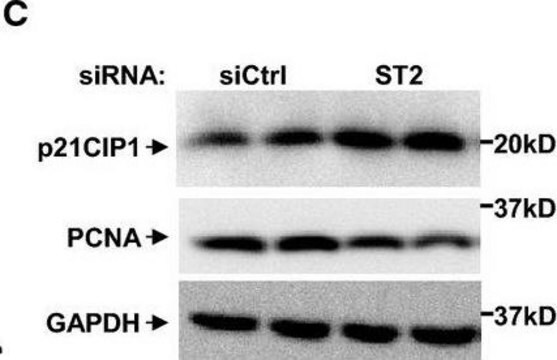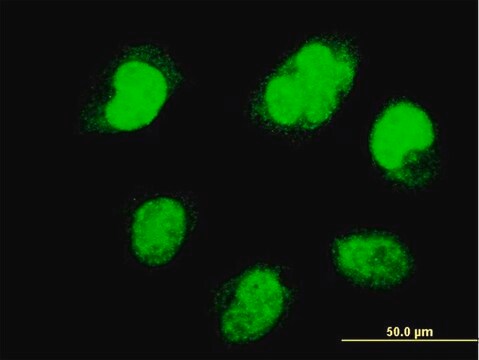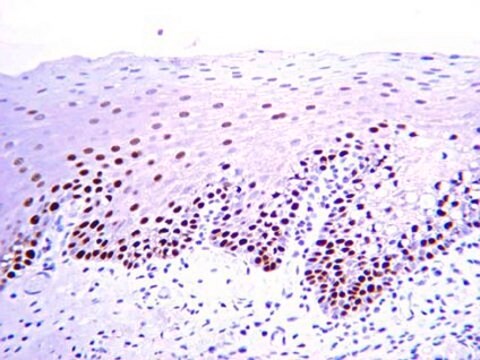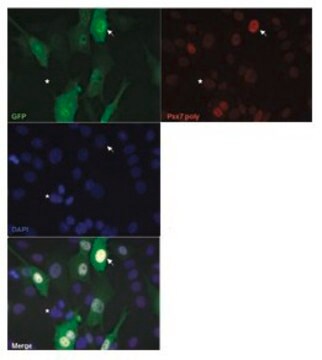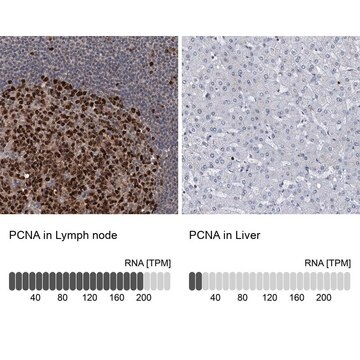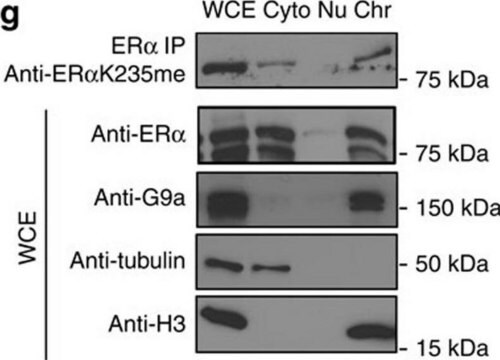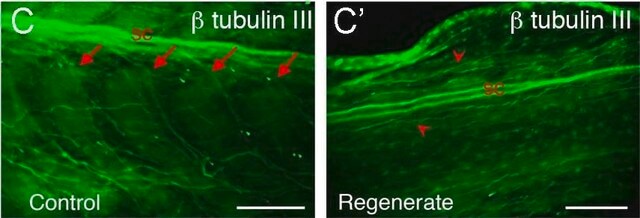SAB2701819
Anti-PCNA antibody produced in rabbit
affinity isolated antibody, buffered aqueous solution
Synonym(e):
cb16, fb36g03, pcna, wu:fa28e03
About This Item
Empfohlene Produkte
Biologische Quelle
rabbit
Konjugat
unconjugated
Antikörperform
affinity isolated antibody
Antikörper-Produkttyp
primary antibodies
Klon
polyclonal
Form
buffered aqueous solution
Speziesreaktivität
zebrafish, (Japanese Medaka)
Methode(n)
immunohistochemistry: suitable
western blot: 500-3000
NCBI-Hinterlegungsnummer
Versandbedingung
wet ice
Lagertemp.
−20°C
Angaben zum Gen
zebrafish ... pcna(30678)
Allgemeine Beschreibung
Immunogen
Anwendung
Anti-PCNA antibody has been used in the detection of proliferating cells by immunofluorescence.
Biochem./physiol. Wirkung
Proliferating cell nuclear antigen (PCNA) controls the production of the leading and lagging strands, which are required for the duplication of DNA. It acts as a cell cycle regulatory protein. This protein regulates apoptosis. PCNA is also involved in non-replicative DNA synthesis events.
Leistungsmerkmale und Vorteile
Physikalische Form
Haftungsausschluss
Not finding the right product?
Try our Produkt-Auswahlhilfe.
Signalwort
Warning
H-Sätze
Gefahreneinstufungen
Aquatic Chronic 3 - Skin Sens. 1
Lagerklassenschlüssel
12 - Non Combustible Liquids
WGK
WGK 2
Flammpunkt (°F)
Not applicable
Flammpunkt (°C)
Not applicable
Analysenzertifikate (COA)
Suchen Sie nach Analysenzertifikate (COA), indem Sie die Lot-/Chargennummer des Produkts eingeben. Lot- und Chargennummern sind auf dem Produktetikett hinter den Wörtern ‘Lot’ oder ‘Batch’ (Lot oder Charge) zu finden.
Besitzen Sie dieses Produkt bereits?
In der Dokumentenbibliothek finden Sie die Dokumentation zu den Produkten, die Sie kürzlich erworben haben.
Unser Team von Wissenschaftlern verfügt über Erfahrung in allen Forschungsbereichen einschließlich Life Science, Materialwissenschaften, chemischer Synthese, Chromatographie, Analytik und vielen mehr..
Setzen Sie sich mit dem technischen Dienst in Verbindung.